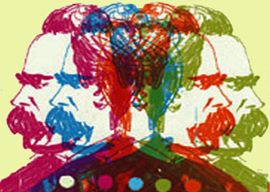
April 13, 2011

Friedrich Nietzsche
Too often, clinical psychology postures itself as a hard science. But there are many observations which science is currently incapable of explaining. Most of the time, we attempt to circumvent these embarrassing observations by claiming that the methodology was flawed, or that the sources are not trustworthy, or that the results are not precisely replicable. But there comes a point at which it is more economical to admit that science as we know it may have its own blinkers rather than continuing to deny the possibility of scientifically inexplicable phenomena.
A recent Austrian documentary called In the Beginning There Was Light filmed people who live for years without eating food and, in some cases, without even drinking water. These people do not lose weight and appear to be very healthy. The filmmaker initially intended the film to be an exposé of their outlandish claims, but he ended up being convinced by what he saw.
The film’s most extreme example is Prahlad Jani (“Mataji”), an 82-year-old Indian man who hasn”t eaten or drank for 70 years. Mataji claims to absorb energy directly from the sun. During the film, he is kept under 24-hour surveillance in an Ahmedabad hospital for fifteen days. Doctors observe him constantly. At the end of fifteen days, they confess themselves utterly baffled by the fact that he didn”t eat or drink anything, and yet he left the hospital as healthy as he was when he entered. Doctors in Europe are equally baffled when the filmmaker shows them the footage. The only interviewees whose conceptual paradigm can comprehend the Mataji phenomenon are two physicists at CERN’s particle-physics laboratory.
In most cases, individuals who live without food or water do not develop this ability from one day to the next. It usually grows out of extensive spiritual or meditative practice. But clinical psychology is too clinical to ever understand such phenomena, whereas humanistic psychology provides a platform from which to begin studying human potential. In doing so, it may provide our best antidote for the looming crisis of meaning.